Even from a cell, Alexei Navalny continues to defy Vladimir Putin
He narrowly escaped death from a nerve agent and is now in a bleak penal colony. But Alexei Navalny’s maintains his fight against the Russian President.
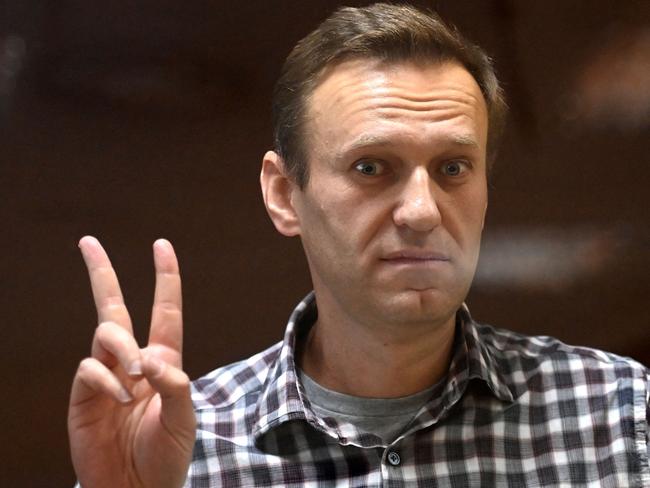
He narrowly escaped death from a nerve agent administered by suspected Kremlin agents and has since been locked in a bleak penal colony. Neither misfortune has dampened Alexei Navalny’s appetite for attacking Vladimir Putin.
From behind bars, the Russian president’s chief domestic opponent has kept up a running commentary via social media on life in “my friendly concentration camp”, as he refers to the maximum security prison in Pokrov, 60 miles east of Moscow where he has languished for more than a year.
Not only that. He has stolen the limelight in the latest “show trial” against him by turning a dingy prison courtroom into another forum for attacks on Russia’s “insane tsar” and his “immoral” and “criminal” war in Ukraine.
Mysteriously, these too have found their way onto the internet – along with appeals for more protests, attracting thousands of “likes”. How does he do it?
A grainy video of the court proceedings, posted to Navalny’s Instagram account (where he has 3.5 million followers), shows guards and judges looking mesmerised as he proclaims: “I am against this war, I find it immoral, fatal and criminal. The war was unleashed by the Kremlin gang to make it easier for them to steal.” The post attracted more than two million likes. In another, he wrote: “The war was intended to cover up the robbery of Russian citizens and divert their attention away from the country’s internal problems, from the degradation of its economy.”
Many imagined that prison would do what all the lawsuits, physical assaults and attempts on Navalny’s life had failed to accomplish: silence him. They were wrong.
Russia’s penal colonies are a law unto themselves where prisoners are routinely subjected to psychological torture. Yet Navalny sounds unbowed, upbeat and even cheerful as he muses about his plight as Putin’s prisoner.
He was sorry to miss the premiere of Navalny, a documentary first broadcast in January about his poisoning in Siberia in 2020. He spent 18 days in a coma after being flown to Berlin for treatment but then began an investigation that unmasked his attackers. The film won an award at the Sundance Film Festival.
“I was going to spend that day all dressed up in a tuxedo and with a glass of champagne at the premiere,” he wrote. “But I will spend it, as usual, in boots, a prison robe and a mug of tea. Well, it makes the story even more interesting.”
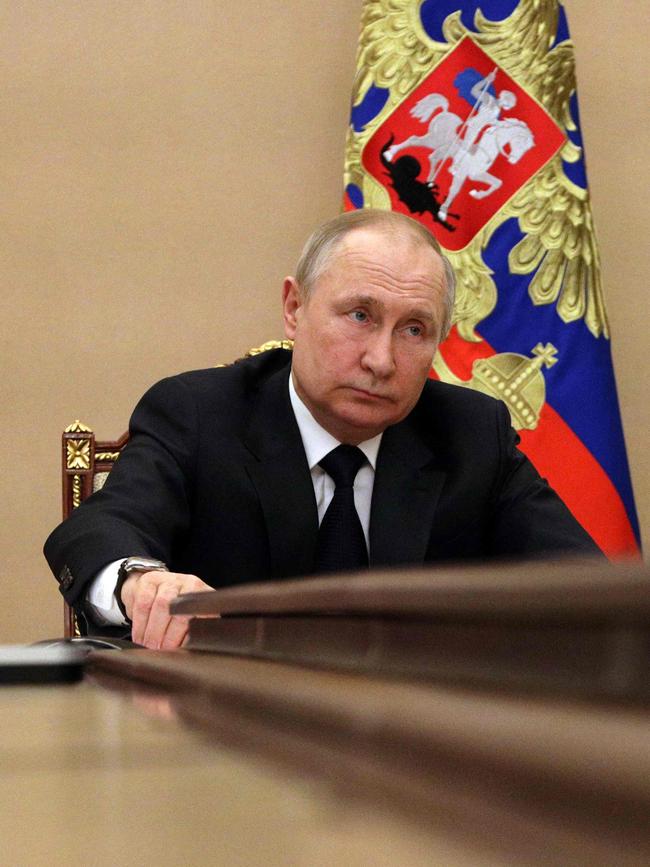
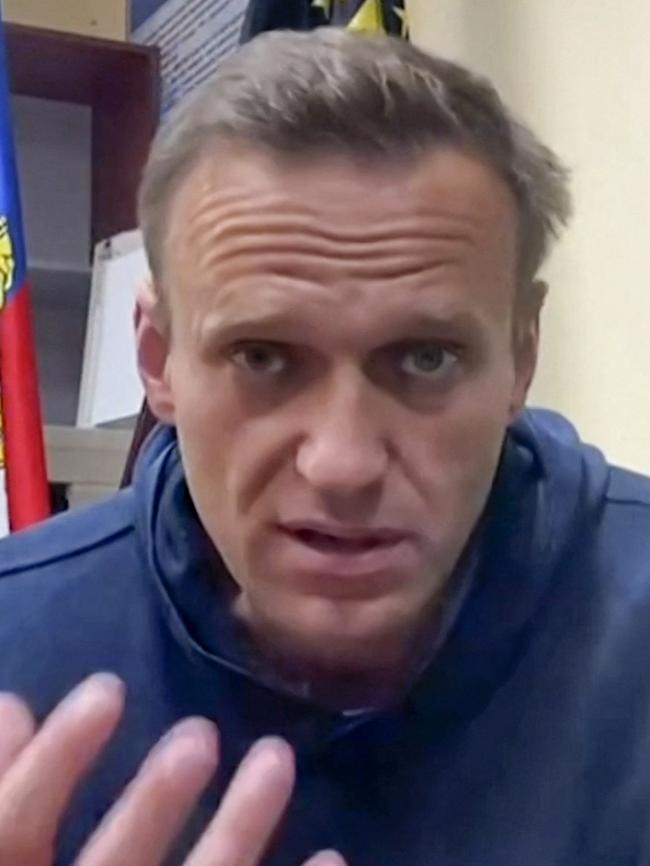
He was arrested at the airport after returning to Moscow in January last year and imprisoned for supposedly violating parole after previous trumped-up charges were brought against him.
Two days after he was jailed, his team released the latest, longest and most explosive of the YouTube videos that made him a Russian internet sensation as an anti-corruption campaigner who exposed the ruling elite’s ill-gotten gains.
Presented by Navalny with all the chutzpah of a wisecracking chat show host, the two-hour film revealed, in extraordinary detail, Putin’s bling-filled pounds 1 billion pleasure palace on the Black Sea coast complete with golden lavatory roll holders, subterranean ice hockey rink and hookah bar. It brought tens of thousands of Russians onto the street chanting “Putin’s a thief” and has attracted more than 120 million views. Putin is thought to have been enraged.
Navalny is convinced the latest dubious court case – allegations that he misdirected funds from his Anti-Corruption Foundation for personal use – is the leader’s revenge, intended to keep him behind bars for decades.
Details of Friday’s proceedings appeared quickly on Navalny’s Twitter account, which is still going, like the Instagram feed. The judge, apparently, questioned Navalny about Putin’s palace, and how he had known about it. He replied: “Well it’s hard to miss,” according to a tweet from one of his assistants, retweeted on his account. He was also asked what had induced him to set up his foundation. “I created it – and please write this down – because I hate this regime, it’s larcenous, disgusting.”
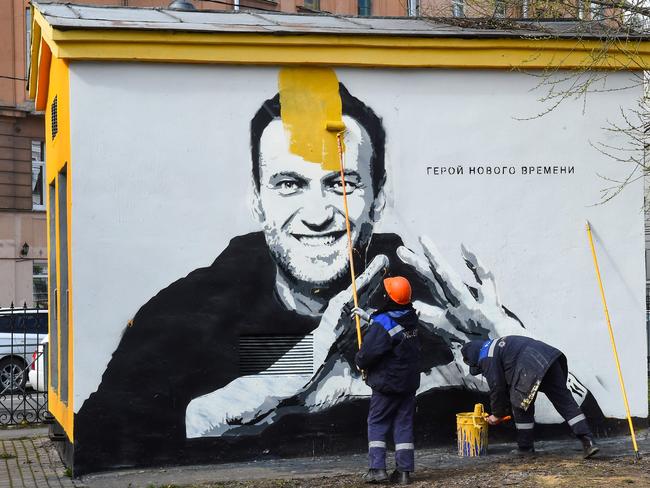
In recent days, Putin has silenced all of Russia’s remaining critical media voices, imposing harsh penalties on anyone referring to his Ukrainian “military operation” as a war. “Soon,” Navalny quipped in a post to his Instagram followers, “you’ll have the same access to information as I do in prison. I mean, none.”
Even though authorities have blocked Facebook and made it harder for Russians to use Twitter and Tiktok, they are able to use so-called virtual private networks, or VPNs, to gain access to blocked social media networks carrying Navalny’s repeated calls for more protests. “I urge everyone to take to the streets and fight for peace,” he wrote a few days ago. “You need to go out to anti-war rallies every weekend, even if it seems that everyone has either left or got scared. Even if you are alone ... you are the backbone of the movement against war and death.”
At the same time, two of Navalny’s exiled lieutenants have set up Popular Politics, a live-streaming YouTube evening video show to help inform Russians about the war. “We will not run away,” Navalny wrote on Instagram. “And we will not surrender.”
During his first months in jail, he went on a hunger strike complaining that he was not allowed proper medical treatment for what were thought to be lingering effects of the novichok poisoning.
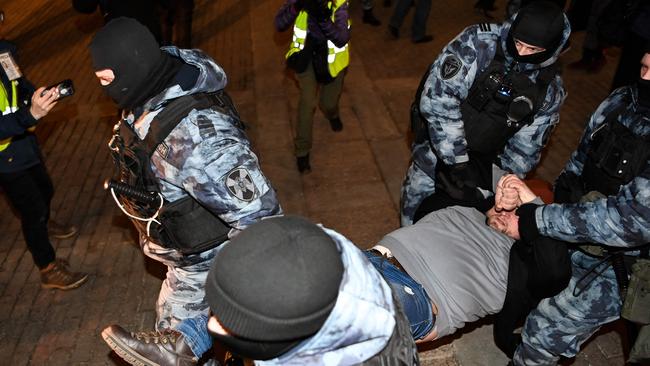
These days he seems in better spirits. On New Year’s Eve, the prisoners were given a treat – tangerines and a piece of cake, he wrote, describing how they were allowed a lie-in until 7am the next day.
“I woke at 5.30 as usual and when I got up at 6.45 and lazily went to wash I felt like a sybarite in a silk robe who in the morning after a noisy party goes from the bedroom to the water disco,” he wrote in a reference to a feature of Putin’s palace.
He has compared his time in prison to a long journey through space. “Yes, such trips are dangerous, you arrive and there is nothing there. Or the flight takes far longer because of a navigational error. An asteroid hits the spaceship and you die. But help often comes as well.”
He has predicted he could face three decades in prison. “So, don’t worry,” he wrote with characteristic irony, “I’ll be out in 2051 at the latest.” Sentencing is expected to take place this week.
THE SUNDAY TIMES


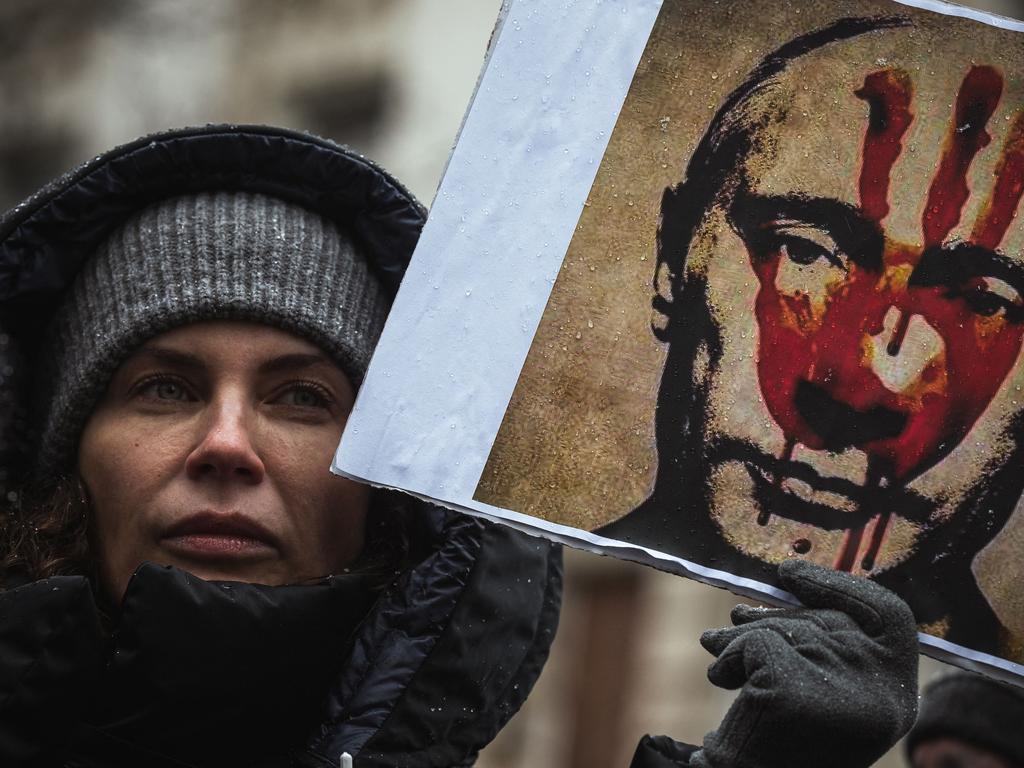

To join the conversation, please log in. Don't have an account? Register
Join the conversation, you are commenting as Logout